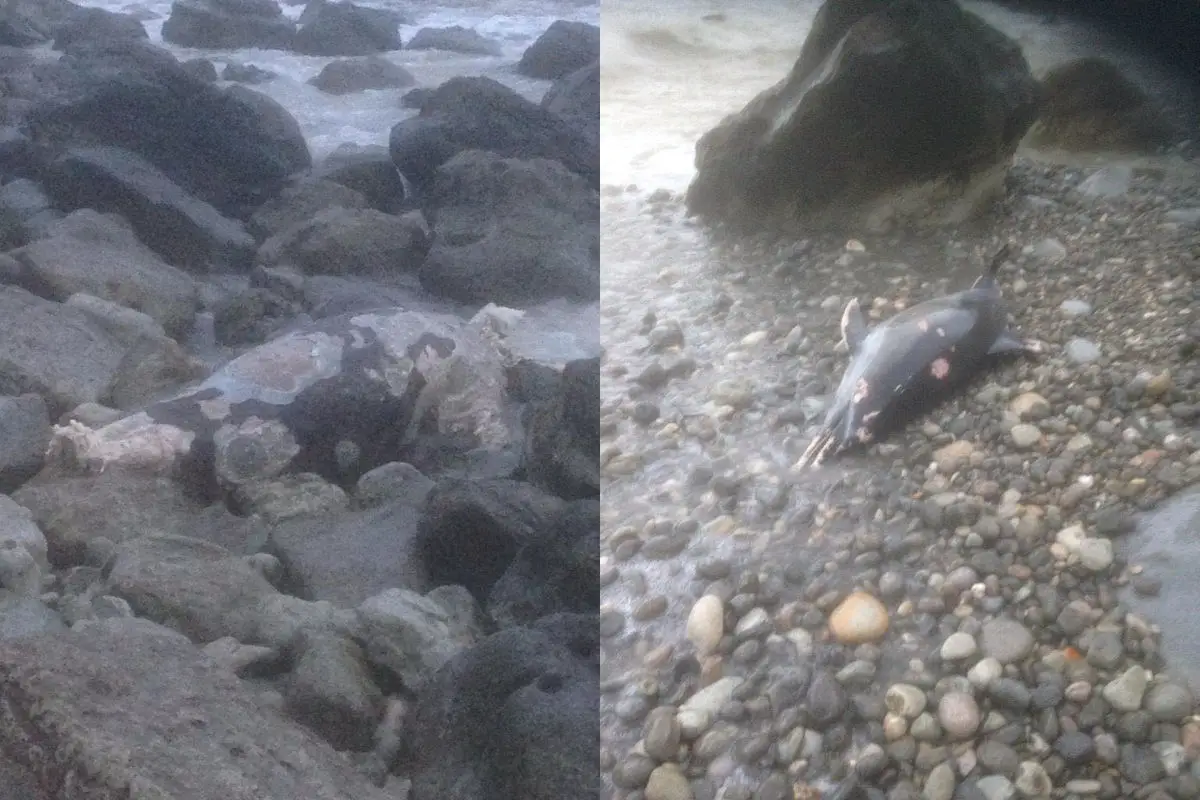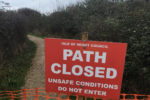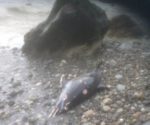After five dolphins were found dead over the course of two weeks along Isle of Wight coast, OnTheWight got in touch with the local expert to find out whether that was unusual and what the cause might be.
Stephan Voigt is the British Divers Marine Life Rescue Assistant Area Coordinator, as well as being a Marine Mammal Medic.
He told OnTheWight that although it is obviously very sad to see such a high number of these animals washing up on our coastline, it is not completely unexpected, in particular not at this time of the year.
He went on to add,
“Having said that, subjectively seen, it feels like an unusually high number for this short period of time.
“However, one has to wait and see what the annual CSIP statistic will show, to draw an objective and scientifically based conclusion.”
What caused the deaths?
The probable cause for the death is not straighforward, as Stephan explained,
“From experience we know that we regularly have the highest numbers of animals washing up on our coast line during winter time, most likely due to certain weather systems influencing currents and prevailing winds.
“Without a thorough assessment, and ideally a post mortem, it is purely speculation, why, when and where these animals have died.”
He added,
“The latest analysis of CSIP stranding data from the past (2011-2017) suggest that Bycatch is the most common anthropogenic cause for the death of cetaceans in the UK, followed by ship strike and entanglement.
“This tragedy is obviously driven by consumer demand, and ‘executed’ by the UK / EU fishery industry.”
Bycatch most common cause of death
Bycatch is the most common cause of death for harbour porpoise and short-beaked common dolphin in the UK. England is leading with regards to bycatch and ship strike, whilst Scotland has the lead when it comes to entanglement.
According to Wikipedia:
Bycatch, in the fishing industry, is a fish or other marine species that is caught unintentionally while catching certain target species and target sizes of fish, crabs etc. Bycatch is either of a different species, the wrong sex, or is undersized or juvenile individuals of the target species.
Starvation due to over-fishing
Stephan explained that another identified cause for deaths is starvation.
He said this affects in particular harbour porpoises, where over-fishing and global warming will most certainly play a significant role too.
Pollution compromising immune systems of marine mammals
Several readers on social media pointed to pollution as being a potential factor in the deaths.
Stephan told OnTheWight,
“Marine pollution and ingestion of marine debris plays a significant role too, directly and indirectly. Persistent organic pollutants (POPs) in harbour porpoises showed that since the 1990s, with the marked exception of polychlorinated biphenyls (PCBs), most legacy POPs (e.g. DDTs) were either declining or occurred at tissue concentrations not thought to pose a significant health risk.
“However, PCBs were both stable over time and still occurred at moderately high levels in UK-stranded harbour porpoises. Long-lived cetacean species such as killer whales and bottlenose dolphins are at greatest risk, when it comes to PCBs intoxication.
“Generally speaking, chronic intoxication due to water pollution, mainly caused by animal agriculture, is thought to be a major factor, which is compromising the immune systems of marine mammals, fish and other marine animals, resulting into secondary diseases, reduced fertility and decreasing life expectancy.”
The statistical data mentioned above are from the UK Cetacean Strandings Investigation Programme MB0111 (and CR0364/ME6008) Marine Biodiversity Division, Defra, and has been compiled by R. Deaville (ZSL).
Our thanks to Stephan for providing such a detailed response to our questions.
What to do if you find a dead cetacean
A reminder that if you discover a dead cetacean.
The Cetacean Strandings Investigation Programme collect a wide range of data on each stranding found on UK shores. In the event that you discover a dead stranded animal, please contact the CSIP hotline and give a description of the following where possible:
- location and date found
- species and sex
- overall length
- condition of the animal
- your contact details should further information be needed
Digital images are extremely helpful in the identification to species of strandings, as well as ascertaining whether the body may be suitable for post-mortem examination. If possible, please also forward any images that may have been taken with a digital camera or mobile phone.
CSIP have a produced a useful leaflet that can be downloaded by clicking here.
CSIP hotline: 0800 6520333. Callers are given a number of options to ensure they reach the correct department. You can also use this number to contact BDMLR as there is an option for live animal strandings that transfers directly.
Image: © Joe Truman





